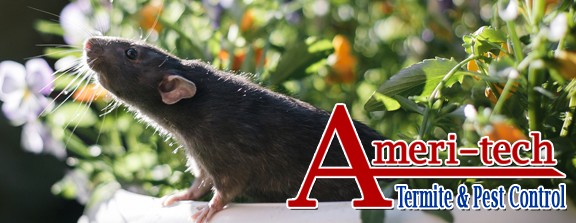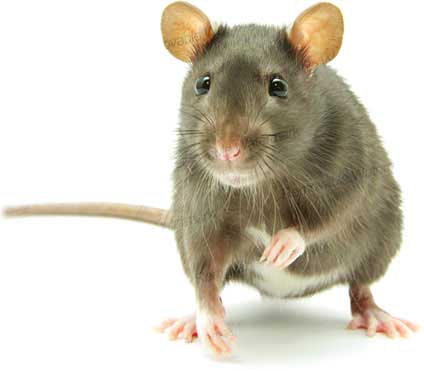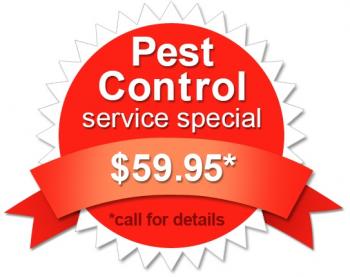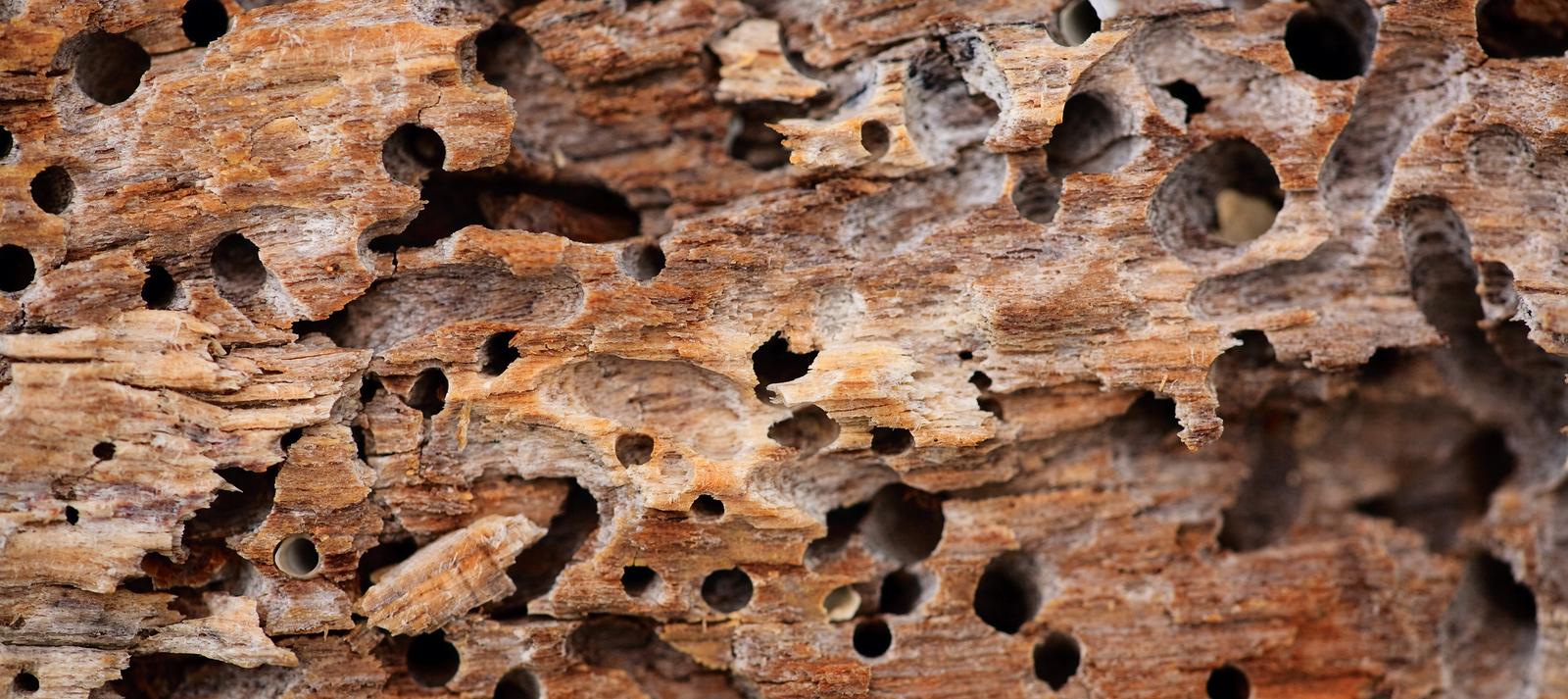Cleburne, TX Pest Control
We offer a comprehensive range of pest control services to meet your needs:
- Termite Control: Safeguard your property with our effective termite solutions.
- Mosquito Control: Enjoy your outdoor spaces without the nuisance of mosquitoes.
- Bed Bug Control: Rest easy with our thorough bed bug eradication services.
- Wildlife Control: Protect your home from unwanted wildlife intrusions.
- Rodent Control: Keep your environment safe and clean with our rodent management.
Whether it's termites threatening your structure or mosquitoes ruining your outdoor gatherings, our team is equipped to handle it all. Trust us to provide tailored pest management solutions that ensure your peace of mind.
In Cleburne, Texas, effective pest control requires more than just a quick fix. It's crucial to identify the signs of pest invasions early and take immediate action to prevent potential health risks and damage to your property. Here's how you can ensure complete pest control:
-
Comprehensive Inspection: Start with a thorough inspection to identify the types of pests present and the extent of the infestation.
-
Targeted Treatments: Use specialized treatments tailored to the specific pests invading your home, ensuring efficient and effective eradication.
-
Ongoing Monitoring: Implement regular monitoring and maintenance to prevent future infestations and maintain a pest-free environment.
-
Professional Expertise: Enlisting the help of a professional pest control service can provide the expertise needed for total pest elimination and peace of mind.
With Ameritech Termite & Pest Control, you can expect a comprehensive and professional approach that prioritizes your safety and satisfaction. Trust us to protect your home and family with our proven pest control methods.
The Importance of Year-Round Pest Control
Constant Threat of Pests in Cleburne, TX
Pests aren’t just a seasonal nuisance; they are a year-round threat to your home. While you might see more bugs in the summer, other critters thrive in colder months. Rodents, for example, seek shelter indoors as temperatures drop, turning your warm home into their perfect nesting ground.
Prevent Long-Term Damage
Consistent pest control helps prevent the long-term damage that infestations can cause to your property and health. Termites, if left unchecked, can devastate wooden structures, while rodents and other pests risk carrying diseases into your home. Year-round treatment keeps these risks at bay.
Pest Breeding Cycles
Different pests have unique breeding cycles and habitats. What works for eradicating pests in spring won’t necessarily be as effective in winter. A comprehensive, year-round strategy adapts to these changes, targeting specific threats at the right time to break the infestation cycle effectively.
Cost-Effectiveness
Routine pest control visits are often more cost-effective than emergency exterminations. By addressing potential issues before they become infestations, you can avoid hefty repair bills and medical costs associated with pest-related damages and diseases.
Peace of Mind
Knowing your home is protected from pests year-round provides peace of mind. You can enjoy your living space without the constant worry about hidden infestations or unexpected critter guests.
Investing in year-round pest control ensures a healthier home environment and a safer, worry-free response to pest challenges that arise at any time.
Cleburne, TX Pest Treatments
-
Wed
 80 °F
80 °F
Pest Control Services in Cleburne, TX
Bed bugs are six-legged parasitic pests that draw human and animal blood. Their length is around 1/4 inch with an oblong flat form, comparable in size to an apple seed. The top area of their body has gold-shaded hair, antennae, and cone-like eyes, while the bottom portion is wrinkly like crinkled paper. Although bed bugs cannot fly, they can crawl extremely fast. They thrive in temperatures ranging from 70 to 80 degrees Fahrenheit. A bed bug nymph is see-through in color and changes to a bright red after feeding. To reach adulthood, a nymph must shed its skin approximately six times. A typical female can lay five to seven eggs per week and produce up to 500 eggs over her lifespan of 12 to 18 months. The eggs hatch in just 6 to 17 days, producing nymphs.
Bed bug eggs are resistant to pesticides, making extermination challenging. These pests hide in bedding, rugs, quilts, clothing, underneath wallpaper, between curtain folds, behind wall decor, and in wooden furniture. They prefer to attack at night and remain active until just before dawn. Bed bugs bite exposed skin on a person sleeping in an infested bed, leaving red, itchy spots. Although they tend to stay close to sleeping areas, they can travel over 100 feet during the night in search of a meal. Once thought to be eradicated in the USA, bed bugs are making a comeback via international travelers.
Beyond bed bugs, homeowners in Cleburne, Texas, face threats from a host of other pests. Cockroaches, ants, mice, termites, and mosquitoes are common intruders that can jeopardize both health and property.
- Cockroaches spread bacteria and allergens, contributing to respiratory issues.
- Ants can invade kitchens and pantries, contaminating food supplies.
- Mice not only damage structures by gnawing through materials but also pose health risks through droppings.
- Termites are notorious for their ability to cause extensive structural damage by feeding on wood.
- Mosquitoes are vectors for diseases such as West Nile virus and Zika.
To protect one's home effectively, it is crucial to implement comprehensive pest control strategies tailored to these varied threats.
Why Immediate Action is Crucial When You Spot Pest Activity
When you detect signs of pests in or around your property, prompt action is vital. Here's why:
-
Health Concerns: Pests can pose serious health risks. Rodents and insects like cockroaches or mosquitoes can carry diseases such as salmonella, Lyme disease, and West Nile virus. Addressing an infestation quickly helps to minimize these health threats to your family.
-
Preventing Property Damage: Pests like termites, carpenter ants, and rodents can wreak havoc on your home’s structure. Termites alone cause billions of dollars in damage annually. Taking swift measures can save you from costly repairs down the line.
-
Avoiding Rapid Infestations: Pests multiply at an alarming rate. What starts as a small issue can escalate into a full-blown infestation if not addressed promptly. Quick action keeps the problem manageable and lessens the chance of a major outbreak.
-
Protecting Food Sources: Insects and rodents can contaminate food supplies, leading to waste and potential foodborne illnesses. Immediate pest control helps to maintain a safe and sanitary kitchen.
-
Maintaining Peace of Mind: Living with pests can be stressful. By addressing the issue as soon as signs appear, you can restore your comfort and sense of safety in your home.
Taking immediate action when you notice pest activity not only safeguards your health and property but also provides peace of mind, ensuring that small problems don’t escalate into major issues.
Serving Cleburne, TX

Rodents In Cleburne, TX
Termite Cleburne, TX
Termite Treatment in Cleburne, TX
How to Keep Your Home and Hotel Bug-Free While Traveling
Traveling can be a delightful escape, but nothing ruins a vacation faster than a bug invasion. Luckily, there are several strategies you can employ to keep your home and hotel bug-free. Here are some essential tips to consider:
1. Inspect Your Hotel Room
- Check Bed and Furniture: Carefully examine the bed, headboard, and furniture for signs of bugs or eggs. Dark spots and tiny insects are red flags.
- Assess the Corners and Cracks: Look into corners, behind picture frames, and under mattresses for possible bug hiding spots.
2. Keep Your Luggage Safe
- Use Rack for Bags: Place your bags on a luggage rack, away from the floor and walls, to reduce contact with potential bug hotspots.
- Seal Your Luggage: Opt for airtight bags or covers to enclose your belongings and deter any bugs from sneaking in.
3. Maintain Cleanliness
- Avoid Unnecessary Clutter: Keep your hotel room tidy to minimize potential hiding places for bugs.
- Dispose of Trash Properly: Regularly dispose of trash to prevent attracting bugs with leftover food odors.
4. Be Mindful With Laundry
- Use Hot Water: Wash clothes in hot water to kill any possible bugs when returning home.
- Dry on High Heat: A high-temperature drying cycle can effectively eliminate lingering insects in your garments.
5. Protect Your Home Before Leaving
- Seal Entry Points: Before heading out on vacation, ensure all entry points, like windows and doors, are securely sealed to block bugs from entering.
- Store Food Carefully: Keep all food in airtight containers to deter pests while you’re away.
6. Repel Bugs Naturally
- Essential Oils: Utilize essential oils such as lavender or peppermint; both are effective repellents when applied or diffused.
- Carry Citrus-Based Sprays: A quick spritz can help deter bugs without relying on harsh chemicals.
7. Monitor for Hitchhikers
- Inspect Returning Luggage: Once home, carefully check your luggage and other belongings for any unwanted visitors before reintroducing them to your living space.
- Vacuum Thoroughly: A thorough vacuuming of your luggage and around entryways can capture any lingering pests.
By adopting these vigilant practices, you can enjoy your travels with peace of mind and return to a bug-free home. Safe travels, and remember: prevention is key!
Go Camping Without Encountering Pests
Camping can be a tranquil escape to nature, but pesky insects can quickly derail the serenity. Here’s how to minimize your chances of encountering pests on your next outdoor adventure.
Choose Your Campsite Wisely
- Location Matters: Opt for a campsite with minimal water sources nearby, as stagnant water is a breeding ground for mosquitoes.
- Avoid Dense Vegetation: Pitch your tent in open areas where there's a breeze, which naturally keeps bugs at bay.
Proper Gear and Equipment
- Insect-Repellent Clothing: Invest in clothing treated with permethrin. Long sleeves and pants are advisable, providing a physical barrier against bites.
- Mosquito Nets: Use mosquito nets over sleeping areas and entry points to your tent.
Smart Use of Repellents
- Natural Repellents: Oils like eucalyptus or citronella can be effective. Apply these on exposed skin or consider using them in candles around your campsite.
- Chemical Repellents: Products containing DEET or Picaridin can offer robust protection. Always follow application instructions for safety.
Cleburne, TX Pest Service
Steps to Prevent a Fruit Fly Infestation at Home
Dealing with fruit flies can be incredibly frustrating. These tiny pests seem to swarm from nowhere, especially when ripe fruits are around. Fortunately, you can take several proactive measures to keep them at bay.
Keep Your Kitchen Spotless
- Store Fruits Properly: Always store ripened fruits in the refrigerator. For fruits that need to be kept at room temperature, consider using a mesh produce bag to cover them.
- Clean Counter surfaces: Wipe down your kitchen counters regularly. Fruit flies are drawn to spills and food residues, so maintaining cleanliness is key.
- Empty Trash Cans Frequently: Take out the trash often, especially if it contains food waste. Make sure the trash can is sealed tightly.
Manage Moisture Levels
- Fix Leaky Faucets: Repair any leaks in your kitchen or bathroom. Stagnant water attracts fruit flies and provides an ideal breeding ground.
- Dry Cleaning Supplies: Hang damp dishcloths or sponges to dry, preventing the accumulation of moisture.
Monitor and Eliminate Attractants
- Inspect Produce: Before bringing groceries into your home, check fruits and vegetables for signs of damage or overripeness. Damaged produce can attract flies.
- Compost Carefully: If you compost indoors, use a compost bin with a tight-fitting lid to reduce odors and potential breeding sites.
Create Deterrents
- Set Traps: If you notice fruit flies, use homemade traps with apple cider vinegar and dish soap to catch them. This solution attracts flies and traps them with its sticky texture.
- Essential Oils: Consider using natural repellents like lemongrass or eucalyptus oil. A few drops in a diffuser can help keep these pests away.
By implementing these strategies, you can significantly reduce the chances of experiencing a fruit fly invasion in your home. A little effort towards prevention can save a lot of frustration down the line.
How to Protect Outdoor Dining from Pests
Outdoor dining can be a delightful experience, but unwanted pests can certainly spoil the fun. Here’s how to safeguard your outdoor dining area from these unwelcome guests:
1. Maintain a Clean Environment
- Regular Cleanup: After every meal, ensure that tables and surrounding areas are thoroughly cleaned. Crumbs and spills can attract pests like ants and flies.
- Trash Management: Use tightly sealed trash bins and make sure they’re emptied regularly to prevent attracting critters.
2. Use Natural Deterrents
- Herbal Solutions: Consider planting herbs such as basil, lavender, and mint around the dining area. These plants not only add beauty but also act as natural repellents against pests.
- Essential Oil Sprays: Mix oils like citronella, eucalyptus, or tea tree with water and spray in the dining vicinity to deter mosquitoes and other insects.
3. Strategic Lighting
- Opt for Yellow Lights: Traditional white lights attract bugs. Switching to yellow or sodium vapor lights can significantly reduce the number of bugs buzzing around.
- Use LED Lights: These are less attractive to insects compared to fluorescent or incandescent bulbs.
4. Implement Physical Barriers
- Screens and Nets: Install screens or netting around the dining area to keep larger pests at bay while still allowing your guests to enjoy the outdoor ambiance.
- Table Covers: Use fitted tablecloths and covers to prevent access to food and reduce the likelihood of pests making a visit.
5. Partner with Professional Pest Control
- Regular Inspections: Engage a reputable pest control service for regular inspections and treatments. This proactive approach helps catch potential issues early before they become significant problems.
- Safe Treatments: Ensure that any chemicals used are eco-friendly and safe for environments where food is served.
Conclusion
By maintaining cleanliness, using natural repellents, adjusting lighting, employing physical barriers, and partnering with pest control professionals, you can effectively protect your outdoor dining area from pests. Taking these steps not only enhances the dining experience but also ensures the comfort and safety of your guests.
Campfire and Lighting Strategies
- Strategic Campfire: Keep a campfire burning—smoke is a natural deterrent for many insects.
- Lighting Choices: Use yellow "bug" lights, which are less attractive to insects compared to traditional white lights.
Food Storage and Cleanliness
- Seal Food Properly: Use airtight containers to store food and dispose of scraps far from your sleeping area.
- Maintain Cleanliness: Regularly clean the campsite, avoiding any potential attraction for ants or rodents.
Stay Vigilant
- Routine Checks: Regularly inspect yourself and your tent for ticks or other pests.
- Proper Tent Maintenance: Ensure your tent is free of holes and keep it zipped when not in use.
By following these guidelines, you can greatly reduce unwanted encounters with pests and enjoy a more pleasant camping experience. Remember, a little preparation goes a long way in ensuring your adventure stays all about nature, not nuisances.





